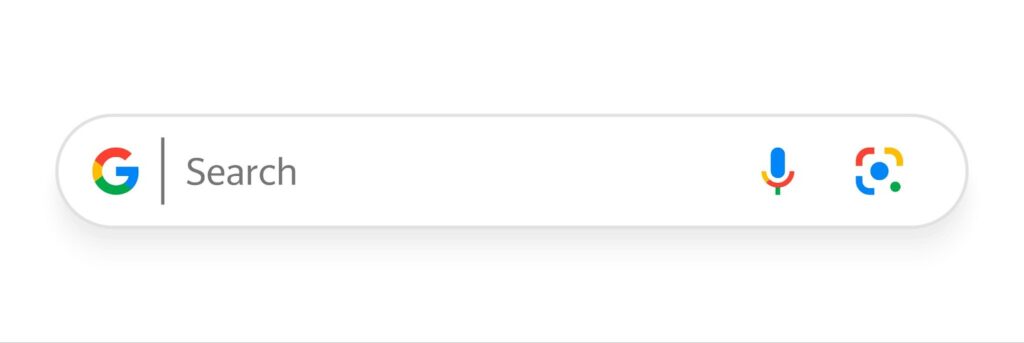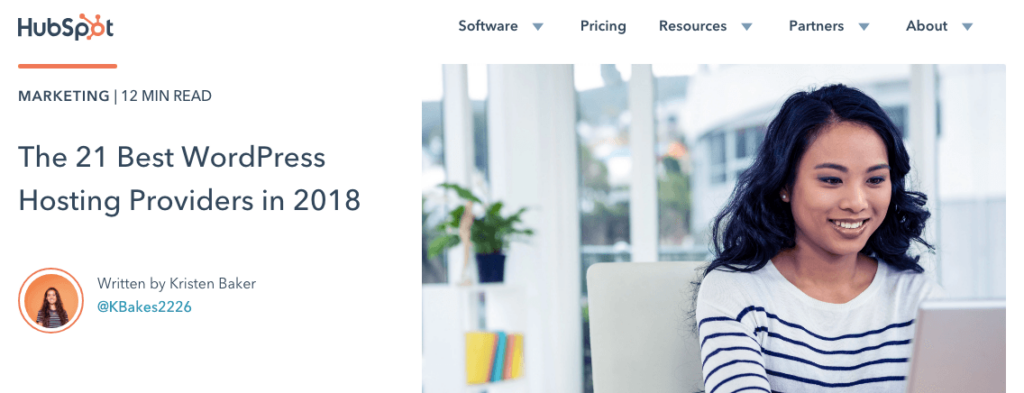
The best of the best–that’s what customers are hoping to find when they browse or shop online. Google’s search engine powers a wide variety of purchase experiences, but those that focus on the “best” as a search qualifier are quickly increasing in volume and popularity.
The problem is that “best” has wildly different definitions depending on the context and the user. In order to provide the most relevant search results possible, Google has researched this simple-sounding word extensively.
Knowing what “best” really means–both to users and to Google–can help your company increase organic visibility and trust, significantly growing your customer base in the process.
More Searches for “Best” Than Ever Before
Google became the world’s de facto search engine in large part because of its ability to parse the meaning behind specific searches, ensuring that its search engine results were more relevant than those provided by other search engines.
As user behavior changes, Google’s results algorithms adapt. One behavior-driven trend to which Google has been busy adapting is the use of “best” in common searches. Rather than searching for “affordable WordPress hosting,” for example, a consumer will instead search for “best affordable WordPress hosting” or simply, “best WordPress hosting.”
As we move further into the era of digital assistants and smart home devices, voice searches are becoming increasingly prevalent. This shift has seen a rise in more conversational queries, where users are likely to ask, ‘Hey Google, what’s the best pizza place that delivers near me?’ Understanding this evolution in search behaviors is crucial for optimizing content to meet the nuances of spoken language, thereby capturing a broader audience.
An Important Opportunity
The customers performing this search might get drastically different results than expected, leaving Google in a quandary because it’s not entirely sure what “best” means in this example.
Despite its inherent vagueness, this type of search is becoming ever-more common, creating an important and enticing opportunity for companies that want to capture this particular share of the market.
That’s especially true for users of mobile devices. Searches from mobile sources with the word “best” included increased by more than 80% between 2015 and 2017.
[what does best really mean?]

What Do People Mean by “Best?”
When a user is browsing online and adds “best” to any of his or her searches, the actual meaning can be unclear. For the most simple example, a user who searches for “best restaurant near me” might be looking for:
- The restaurant with the best total reviews and ratings
- The restaurant with the largest portion sizes
- The restaurant with the highest Michelin star rating
- The restaurant with the best fried chicken (or sushi or steak, etc.)
- The best restaurant for entertaining a date
- The best restaurant for feeding a family
As you might predict, this list could continue for quite some time. Users rely on “best” more than almost any other qualifier, despite its potential to create a nebulous meaning. It’s important to look upon this behavior as an opportunity.
Recent advancements in AI, including Google’s BERT model, have significantly refined how search engines interpret the intent behind queries. These improvements mean that when a user searches for the ‘best’ option, Google is now better equipped to consider the full context of the query, making it essential for SEO strategies to align not just with keywords but also with the intended meaning behind them.
Why Do We Use the Term “Best”?
If it’s such a nebulous and opaque term, why do we use “best” so often? Google’s own research into this same question has yielded a few discernible conclusions.
- Value. Most shoppers who use the term “best” are doing so for one underlying reason: they want to make sure their money is well spent. They might not know, specifically, what that will look like at the end of the transaction (hence the open-ended search parameters), but these shoppers want assurances that they’re making wise financial decisions.
- Efficiency. These days, you can search for almost anything from your couch. And that kind of power is nearly overwhelming to most shoppers. When a user searches for affordable shoes that will last for years, fit well, and maintain their comfort, it can be challenging to know precisely where to start. It’s easier, faster, and more gratifying simply to use the word “best” and start seeing results.
- Youth. The psychological and financial impact that the Great Recession has had on the Millennial generation should not be underestimated. Millennials are more frugal (and limited) with their finances than any previous generation. So it’s not surprising that the vast majority of those searching for “best” tend to land on the younger side.
Shoppers use “best” for a wide variety of reasons, but it’s usually because the term is a shorthand for what the shopper is really looking for. Market research and user personas can help your company fundamentally understand what your customers mean when they search for the “best.”
And when you know what your customers mean, you can turn things over to your marketing department.
Do Shoppers Even Know What They Mean?
It’s important to note that not all shoppers are aware of what they’re searching for when they use these “best” searches. True, some online shoppers will know that when they type in “best business intelligence tools,” they’re really looking for the most comprehensive option in terms of metrics analyzed.
But that doesn’t mean every user who searches for “best business intelligence tools” is going to be evaluating the price, number of users allowed on the account, metrics analyzed, and readability of reports. Additionally, for some shoppers the best business intelligence tools will have the easiest to read reporting. For others, price will be the key factor.
[best business intelligence tools search results]

It’s unlikely that all shoppers will be doing this complex calculus as they initially search for the best BI tools or even the best managed WordPress hosting. But they will be expecting fast results that align with their own definitions of what “best” is.
How to Leverage “Best” Searches
Once you know what customers mean when they search for best–and even if you don’t have an answer on that quite yet–you still want to rank well for all of these “best” searches. In other words, it’s time to turn these searches into an opportunity to grow your sales base.
There’s no one right way to leverage these searches–the approach your marketing team employs will likely depend on your company, your long-term marketing strategies, and your brand identity (among other criteria). However, there are some general marketing tactics your team can employ to ensure you aren’t leaving opportunities behind.
Ensure Your Reviews Are Plentiful and Positive
“Best” is often shorthand for “best reviewed.” In order to take advantage of these searches, your company needs to ensure that reputation is being fully managed.
There are three primary platforms where users will search for reviews and ratings:
- Google. Surprising no one, Google has quickly become one of the most authoritative review compilers on the internet. There’s a fair bit of evidence that Google reviews also have an impact on search engine results rankings. The more Google reviews you have, and the better those reviews are, the more ably your company can target “best” results.
- Yelp! Yelp is one of the oldest review networks on the internet and, as such, still carries a considerable amount of social cache. Yelp also gives businesses a fair number of tools that can be used to enhance the customer experience and manage their reputation. Just about every company is on Yelp in some fashion, so it’s important not to ignore this particular network.
- eComm. Just about every ecommerce website these days has native review support. You want customers to leave as many reviews as possible. Shoppers often use reviews on Amazon as a trusted baseline–but any online purchasing experience offers you the chance to manage your reputation effectively.
In addition to traditional review platforms, the rise of social media and specific review sites tailored to particular industries or interests (like Trustpilot or TripAdvisor) have diversified where opinions are formed. Encouraging happy customers to share their experiences on these platforms, as well as on social media, can amplify your visibility in ‘best’ searches across multiple digital landscapes.
Positive reviews are key to showing up in “best”-related search results and leveraging those results to increase your sales base.
Update Your Website Content
Reviews and ratings are just one piece of the puzzle, however. There are other steps your marketing team can take to capitalize on “best” searches.
One of the most important steps is to update the copy and content on your website to reflect the ways in which your company might be providing the “best” product or service.
The new copy could highlight:
- The pricing of your product. This would appeal to those who are really searching for the greatest value when they perform “best” searches.
- The fact that your product or service compares favorably to other, similar products and services.
- The overall satisfaction of your customers. This type of content update would appeal to customers who are looking for the peace of mind that comes with investing their money wisely.
- Any unique qualities that are inherent to your product or service. Anything that helps your company stand out will likely already be noted on your website copy–but calling it out intentionally can help you succeed in “best” rankings.
There are several ways that your marketing team can update your website content to favorably gain Google’s attention and likely lead to an increase in search results rankings. The most obvious, of course, is to update the written content that is likely already abundant on your website.
[optimize website copy]

But it’s important, too, to update other forms of content, such as images, videos, and even podcasts. Not only does Google crawl these various content types (don’t forget to use alt tags), but your customers do as well. The more your customers engage and interact with your content, the higher your Google rankings will likely become.
Identify the Right Keywords
If part of your strategy is to update your website content–and it should be–then it’s important not to skip the step of identifying the right “best”-related keywords. “Best” is a very general term. Customers may or may not know the more specific idea they’re searching for–it depends on the customer and on your company.
That’s why you should spend some time conducting market research into what, precisely, your customers mean when they search for best. You could gather this information in several ways:
- Focus groups could provide you with highly detailed information from a representative cross section of your customers.
- Email surveys could provide your marketing team with a basic framework for what your customers search for (these surveys are typically not very long, so you may not be able to acquire a significant amount of information).
- Research into onsite user behavior can also provide necessary clues. Identifying specific landing pages, for example, could tell you which of your company’s products or services are most popular. Google analytics is consistently a valued tool for this type of research.
This market research is exceptionally important and could help your marketing team successfully begin to decipher what your customers mean when they say they want the “best.”
To further refine your keyword strategy, leverage insights from Google’s ‘People Also Ask’ and ‘Related Searches’ features. These tools can reveal additional layers of specificity that users seek when they query for the ‘best,’ allowing your content to be precisely tailored to answer these nuanced inquiries effectively.
Find Your Way onto “Best Of” Lists
In some cases, highlighting your company’s own best qualities isn’t going to be convincing enough to Google, no matter how large your company might be. That’s why it’s important to find your way onto a few “best of” lists.
[get yourself on best of lists]

These lists are never very difficult to find. No matter the product or service you offer, there’s probably a top ten list somewhere that touches on that particular area of the market. Finding your way onto these top ten lists helps bolster your credibility–both to Google and to your customers.
While your company can’t exert outright control over these top ten lists (usually), there are some concrete steps you can take to increase the possibility that your company’s product or service can end up there:
- Contact the entities that write the lists in order to personally offer your company’s product or service at no charge.
- Have confidence in your product! Direct your marketing team to regularly supply content that puts your product in the same category as the best in your vertical.
- If your company offers multiple products, direct your marketing team to ensure that comparison of these products is very easily done on your website.
[pagely on the hubspot best of list]

What if You Aren’t the Best…Yet?
If you’re at the top of your field, it’s easy for Google to see you as the best and rank you accordingly for those related search terms. But that’s not always going to be the case.
That doesn’t mean that these opportunities go away, however. In fact, the vagueness of “best” searches actually gives your company an advantage, no matter the strength of your reputation. If you know what your customers are really searching for when they want the “best,” you can target those search terms instead.
After all, Google has confirmed that users who search for “best” are often intent on something a little more specific. If your marketing team highlights those qualities that help your company stand out instead of the word “best,” you might receive a fair amount of traffic from those searches anyway.
Your marketing team might instead optimize for:
- “Affordable”
- “Longest-lasting”
- “Highest quality”
- “Authentic”
- “Great value”
You get the idea. The exact words for which your company optimizes will vary based on your brand and business model.
Ethical SEO Practices and Long-term Strategy
As you aim to rank for ‘best’ queries, it’s paramount to adhere to ethical SEO practices. Avoid the temptation of over-optimizing your content for these terms, which could lead to penalties from search engines. Instead, focus on genuinely providing the highest value, which not only aligns with search engine guidelines but also builds long-term trust with your audience.
Is Chasing “Best” Really Worth it?
What “best” really means is going to vary depending on the rest of the search criteria–whether the user is searching for a restaurant or a law firm or a marketing agency. Google’s own research has proven that users are deploying this search term with increasing frequency, depending on Google to sort out what they really mean.
In large part due to Google’s success in providing relevant results, “best” is a search modifier that’s likely to be with us for some time, even if newer trends arise. That means optimizing for “best” searches is vital for the long-term organic success of your company. The sooner you rank among the best, the more likely you are to stay there–as long as you continue doing everything right.
What does “best” really mean? For your company, it could mean a significant opportunity.
